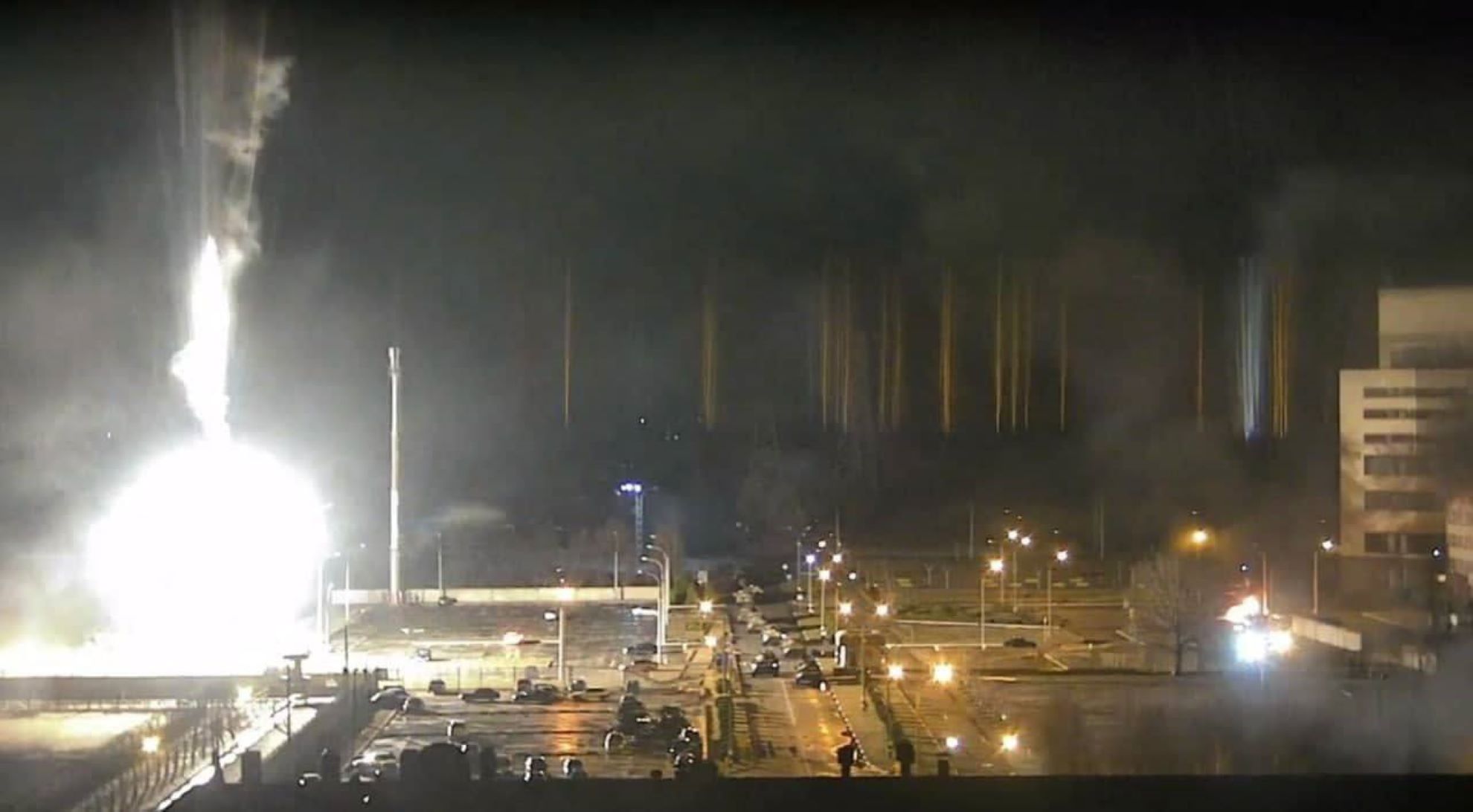The threat of nuclear disaster has once again raised its head in Ukraine. On the morning of this eighth day of Putin's invasion, Russian forces attacked the Ukrainian nuclear power plant in Zaporizhzhia, in the south-east of the country, and caused a large fire, reawakening the fear of nuclear accident both in Ukraine and around the world. A Russian projectile impacted within the complex of the largest nuclear power plant in Europe, specifically in one of the administrative buildings. That is, the attack did not directly hit any of the plant's six reactors. However, the director of the plant, Igor Murashov, announced that the security of the facilities had been compromised. Later on Friday morning, Ukrainian local authorities reported that the Russian army had taken control of the nuclear power plant.
The attack caused a large fire in one of the plant's administrative buildings, which are relatively close to the reactors. According to the Ukrainian authorities, given the proximity of the fire to the power station itself, the priority was to get the fire brigade to extinguish it, but this operation proved extremely difficult, as the presence of Russian troops made it difficult for firefighters. As fire teams dodged the Russian offensive to gain access to the nuclear power plant complex, flames spread inside the building. Finally, at 5am, the Ukraine emergency services declared the fire extinguished.
The fire damaged an area of 2,000 square metres inside the nuclear plant site. Ukraine's energy minister Herman Galushchenko warned after the Russian attack that the world is on the brink of the gravest nuclear catastrophe in the history of peaceful nuclear power. "The aggressor continues to strike devastating blows in Ukraine. He is not stopped by thousands of victims or tragedies. Now they want to destroy everyone," he denounced.
The International Atomic Energy Agency is monitoring the situation at the plant and has assured that the situation, although worrying, is under control. In fact, the body met this Tuesday to discuss the nuclear threats arising from the conflict launched by Russia. It outlined seven indispensable pillars of nuclear safety and security that must be guaranteed at any nuclear facility, "several of which had already been put at risk during events overnight".
The shadow of Chernobyl
From the first reports of the attack on the Zaporizhzhia nuclear power plant, comparisons with Chernobyl have been inevitable. The nuclear disaster at Chernobyl, 150km north of Kyiv, hung in the air during this morning's alert at Zaporizhzhia. The memory of the 1986 nuclear accident was also verbalized by Ukrainian president Volodymyr Zelensky: "Chernobyl was a global catastrophe. Russia wants to repeat this and is repeating it, but six times larger".
In a recorded message this morning, Zelensky addressed not only his fellow citizens on the nuclear threat, but also made an international appeal. "Europe must wake up now! Europe's largest nuclear power plant is on fire, nuclear units are being shut down right now." The president described the actions of the Russian army as "nuclear terrorism": "For the first time in our history, in the history of mankind, the terrorist state (Russia) has resorted to nuclear terrorism."
On Thursday in Barcelona, Ukrainian consul Artem Vorobiov, also referred to the grave threat of a nuclear accident because of Russia's aggression in his country, arguing that this risk made it essential for NATO to impose no fly-zone in Ukraine airspace. "Only in this way can we protect the civilian population of Ukraine, and not just ourselves. Because otherwise we will have a nuclear catastrophe, and everyone will be hit by that, not just Ukrainians," he warned, at a Catalan government event.

